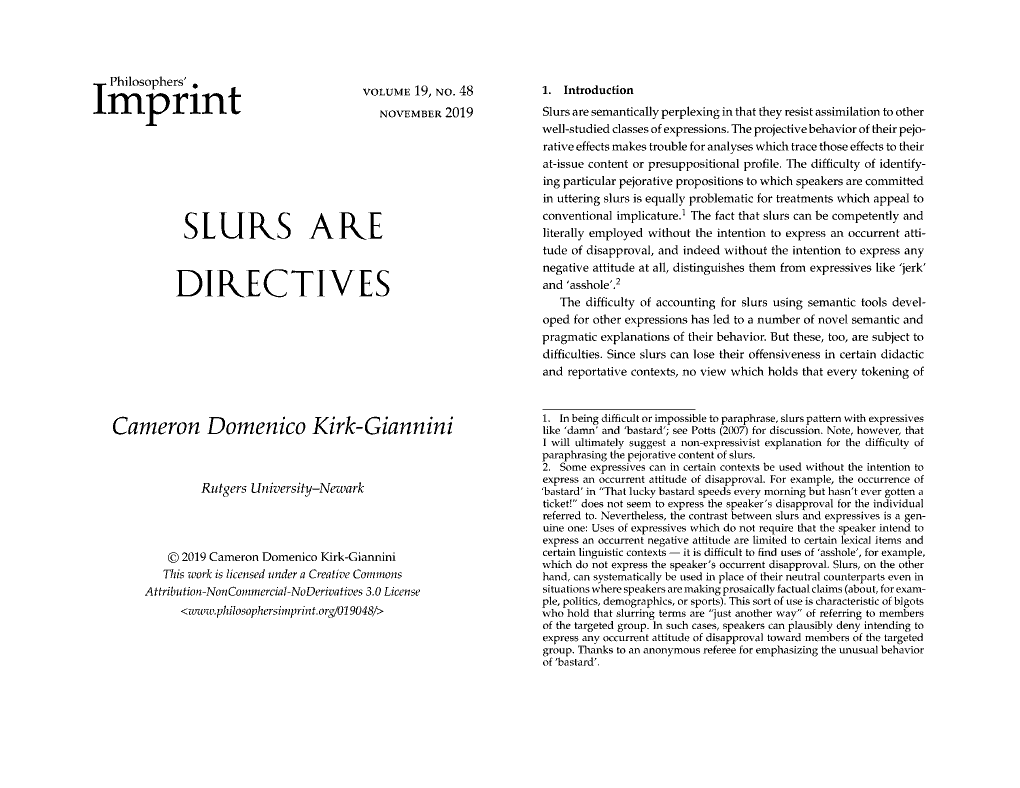Slurs Are Directives
Skip other details (including permanent urls, DOI, citation information): This work is licensed under a Creative Commons Attribution-NonCommercial-NoDerivatives 4.0 International License. Please contact mpub-help@umich.edu to use this work in a way not covered by the license.
For more information, read Michigan Publishing's access and usage policy.
Abstract
Recent work on the semantics and pragmatics of slurs has explored a variety of ways of explaining their potential to derogate, with the most popular family of approaches appealing to either: (i), the doxastic or evaluative attitudes or commitments expressed by — or (ii), the propositions concerning such attitudes or commitments semantically or pragmatically communicated by — the speakers who use them. I begin by arguing that no such speaker-oriented approach can be correct. I then propose an alternative treatment of slurs, according to which they are semantically associated with both descriptive and directive content. On the view I defend, when speakers use slurs, they simultaneously propose to add an at-issue proposition to the conversational common ground and issue a not-at-issue directive to their interlocutors to adopt a derogatory perspective toward members of the targeted group. This proposal both avoids the problems faced by other accounts and opens up a novel way of thinking about the phenomenon of appropriation.



